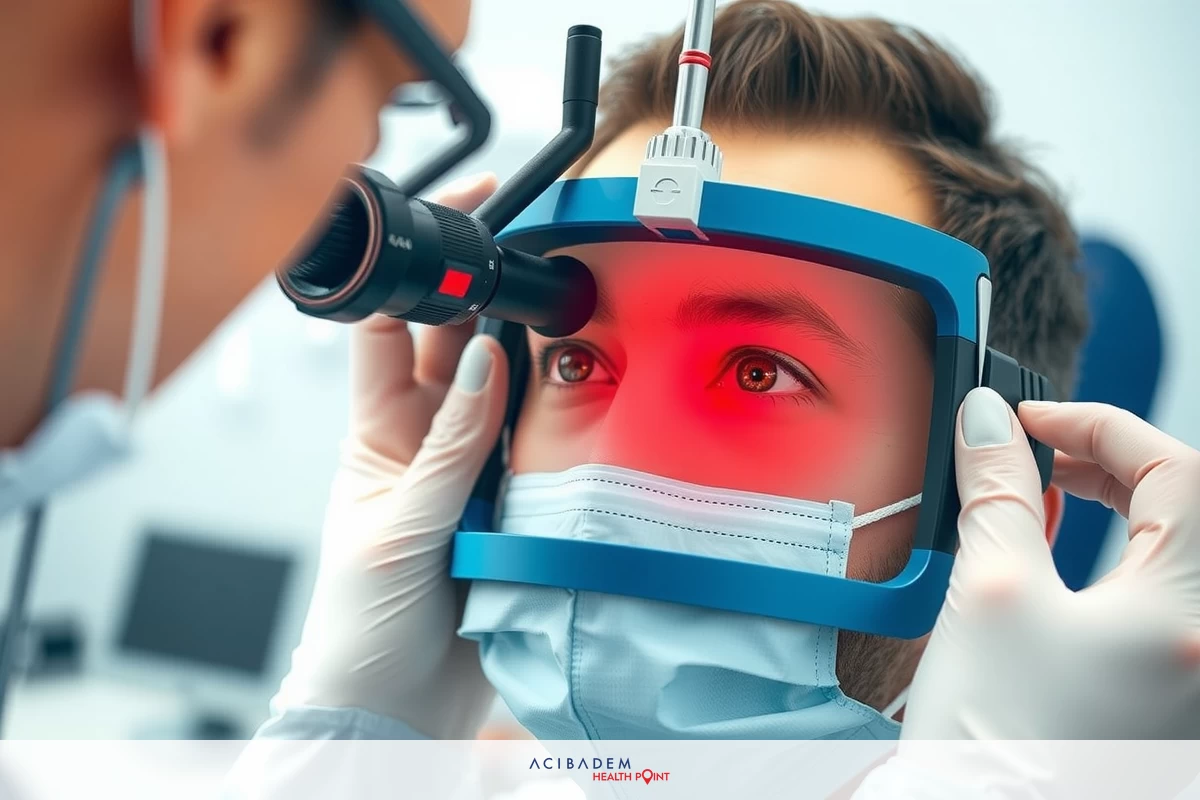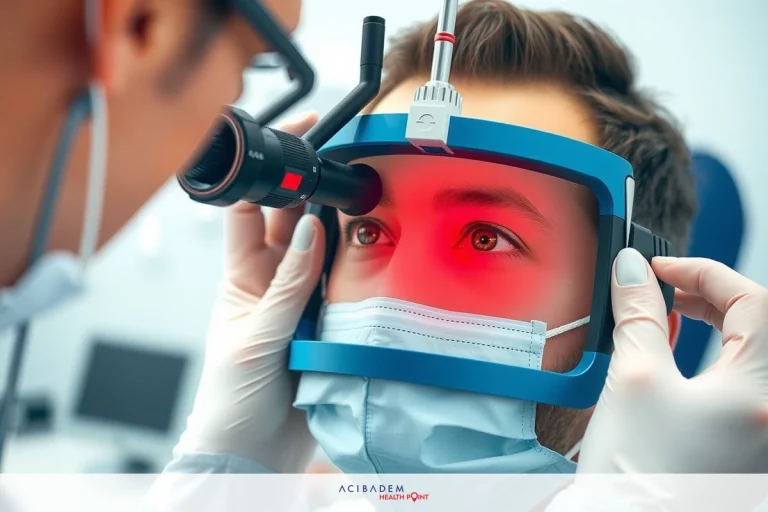What Type of Laser Eye Surgery is Best
What Type of Laser Eye Surgery is Best. The realm of ophthalmology has been revolutionized by the advent of laser eye surgeries. These cutting-edge technologies have provided a beacon of hope for those grappling with vision problems, offering new avenues to regain clear sight. Among these, LASIK, PRK, and SMILE emerge as popular choices – each distinct in their approach yet united in their purpose.
Choosing the best type for your needs can feel overwhelming with so many factors at play. Your prescription strength holds sway over this decision alongside other elements such as corneal thickness and lifestyle habits. A deep understanding of these intricacies aids one in making an informed choice.
A consultation with an experienced eye specialist serves as a cornerstone during this pivotal journey towards improved vision. Their expertise allows them to assess individual situations meticulously and offer personalized recommendations that align perfectly with one’s unique requirements.
Types of Laser Eye Surgery
The landscape of laser eye surgery is marked by its diverse range, each bearing unique attributes and benefits. LASIK, PRK, and SMILE are the prime types that have transformed countless lives with their precision and efficacy.
LASIK (Laser-Assisted In Situ Keratomileusis) has firmly established itself as a popular choice among patients worldwide. This procedure involves creating a thin flap on the cornea’s surface, which is then lifted to allow lasers to reshape the underlying tissue. A pivotal advantage lies in its speedy recovery time – most individuals regain stable vision within 24 hours post-surgery.
PRK (Photorefractive Keratectomy), while sharing similarities with LASIK in terms of target outcomes, differs significantly in its approach. Rather than forming a flap like in LASIK, this method works directly on the cornea’s surface layer for reshaping. Patients with thinner corneas often find PRK as an ideal solution given this attribute. However, it does require longer healing times compared to LASIK but offers similar long-term results.

Last but not least, we arrive at SMILE (Small Incision Lenticule Extraction). Considered relatively new compared to its counterparts mentioned above; it brings forth advancements that reduce potential risks associated with flap creation seen in LASIK procedures. Herein lies one of its key strengths – instead of creating a full flap or working directly on the corneal surface like PRK or LASIK respectively; it carves out a small lenticule inside your cornea using femtosecond lasers after making just one tiny incision point on your eye’s surface.
Factors to Consider
When embarking on the journey towards clearer vision through laser eye surgery, it is essential to weigh numerous considerations. These factors will guide you in making a well-informed decision that aligns with your unique requirements and lifestyle.
Prescription Strength: The severity of your visual impairment, as indicated by your prescription strength, plays a pivotal role in determining the best type of laser eye surgery. While LASIK might be suitable for moderate degrees of myopia or hypermetropia, those with high refractive errors may find other methods like PRK or SMILE more beneficial.
Corneal Thickness: This is an anatomical aspect that significantly influences which procedure would suit you best. For instance, individuals with thinner corneas can opt for PRK instead of LASIK as it does not involve flap creation and hence preserves more corneal tissue.
Lifestyle: Your lifestyle also contributes to this important choice. Active individuals engaged in contact sports could benefit from procedures like PRK or SMILE where there’s no risk associated with flap displacement – a potential concern post-LASIK surgery.
In addition to these key aspects:
Age and Eye Health: It’s vital to factor in age-related changes along with overall eye health when considering laser eye surgery. Certain conditions such as severe dry eyes or unstable prescriptions might indicate the need for alternative solutions.
Healing Time & Comfort Level: Lastly, consider how much downtime you are willing or able to take after the procedure; different surgeries come with varied healing times – while LASIK offers quick recovery times, PRK takes relatively longer but provides similar long-term results.
Every individual comes equipped with their unique set of circumstances and needs; understanding these factors empowers one towards choosing the best type of laser eye surgery tailored specifically for them.
Consulting with an Eye Specialist
The decision to undergo laser eye surgery is not one made in isolation. It involves a symbiotic relationship between you and your eye specialist, whose experience and expertise are invaluable assets on this journey. An initial consultation forms the foundation of this process, offering insights into your unique situation that can significantly influence the choice of procedure.
An experienced eye specialist brings a comprehensive understanding of both, the nuances associated with different types of laser eye surgeries and individual patient needs. They carry out detailed examinations to gauge key factors like prescription strength, corneal thickness, ocular health among others – all contributing towards identifying the most suitable surgical option for you. This personalized approach paints a clear picture that aids in making informed decisions about opting for LASIK, PRK or SMILE procedures based on one’s specific circumstances.
But their role extends beyond just procedural recommendations; they also provide essential guidance on preoperative preparation and postoperative care – crucial elements that determine successful outcomes from these surgeries. From advising cessation of certain medications prior to surgery to outlining robust aftercare routines aimed at optimal recovery – their recommendations encompass every stage of this transformative process.
Consulting an expert does more than just offer professional advice; it instills confidence by addressing concerns related to potential risks or apprehensions about the procedure itself – paving way for positive experiences throughout your vision correction journey. Ultimately, investing time in consulting with an
experienced eye specialist is as important as choosing the best type of laser eye surgery – both working hand in-hand towards achieving improved vision catered specifically for you.
Frequently Asked Questions
What is the recovery time for different types of laser eye surgeries?
The recovery times vary depending on the type of procedure. LASIK usually offers a quick recovery with most patients experiencing improved vision within 24 hours post-procedure. PRK, however, requires more healing time due to its approach that involves working directly on the corneal surface but delivers similar long-term results as LASIK. SMILE also exhibits quicker recovery akin to LASIK.
Can anyone undergo laser eye surgery?
Not everyone may be a suitable candidate for laser eye surgery. Factors like age, prescription stability, overall ocular health including conditions such as severe dry eyes or glaucoma among others can influence eligibility for these procedures.
Are there any risks associated with laser eye surgeries?
As with any surgical procedure, certain risks do exist even though they're relatively rare in occurrence. These could include undercorrection or overcorrection, dry eyes and in some cases visual disturbances especially under low light conditions.
How does an eye specialist determine which type of surgery would suit me best?
An experienced specialist conducts detailed examinations assessing multiple factors - your current prescription strength, corneal thickness along with other health-related aspects specific to your situation before recommending a particular type of procedure (LASIK/PRK/SMILE).
These answers are intended for informational purposes only and do not constitute medical advice; always consult an expert before making decisions regarding your health.








